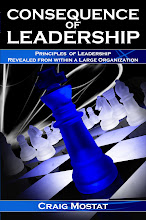I have been watching the X Factor series on TV (similar idea to the American Idol) with Simon Cowell as one of the judges. Simon Cowell is well known for his blunt and controversial criticisms – he says it the way he sees it and based on his comments I can't image that he holds anything back.
It's actually quite refreshing; someone who is completely honest and says what he means and means what he says. There is no political correctness in this guy whatsoever. Everyone knows where they stand with him.
He is generally not even nice about it, no sugar coating. I imagine most people think he is harsh, mean, and perhaps rude.
Question: What is worse?
Lying and deceiving someone by telling them what they want to hear rather than what you really think?
Or,
Being completely honest and saying what you really think in an effort to help?
There are four judges on this television show, but it is clear that Simon Cowell is the most respected. We especially wait to hear his opinion above the other three, regardless of how harsh it may come across, because we know that it will be an honest opinion. Society is craving honesty in communication.
The first step to encouraging honesty is to accept and understand one simple fact: Having hurt feelings is a choice.



